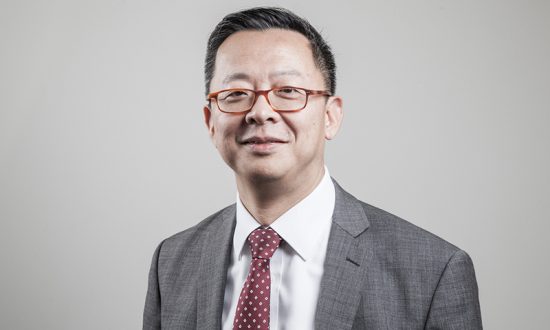Prof. Raymond Lee is the Associate Dean (Global Engagement) of the Faculty of Technology – University of Portsmouth, UK, and also the Chair of the Biomedical Engineering Research Group. His research lies at the interface of engineering and clinical science. Prof. Lee has specific interests in spine biomechanics, ageing and osteoporosis, using engineering methods to study the mechanisms underlying spine disorders and to quantify clinical outcomes. In an email interaction with Higher Education Digest, Prof. Lee talks about his latest research, the growing popularity of Biomechanics as a career choice, the scope for Indian students in this course and many more. Excerpts.
Your research lies at the interface of engineering and clinical science. Could you tell us more about the specifics of the research that you are doing now? How will this research impact the world?
Biomedical engineering sometimes referred to as bioengineering, is a multidisciplinary STEM field that lies at the interface of medical sciences and engineering. It is a broad field, and my academic work is related to biomechanics which is associated with the application of mechanical engineering to medicine and healthcare. It is a subdiscipline of biomedical engineering.
More specifically, I look at the application of health technologies and sensors that can improve our health and well-being. For example, we have developed sensors and mobile apps that can help reduce the risks of neck and back pain and detect falls in the elderly. In our research group, we have an active programme of work related to heart and respiratory disorders and a wide of health technology applications, including sleep disorders.
When did you start researching on quantifying the mechanical loading on the body during everyday activities? What sparked your interest?
We have published a new algorithm for monitoring physical fitness and activity level, and we are interested in looking at the relationship between obesity and bone and muscle health in older adults. We have been studying activity monitors for more than ten years. Our interest in this area is driven by a lack of scientific evidence to support what we do. Most commercial activity monitors only look at the number of steps that a person take in a period, although this parameter may not be most useful in assessing the influence of physical activity on health.
Exactly, what is the study of biomechanics? Why should some study biomechanics, and what jobs will they get on graduation?
Biomedical engineering is one of the fastest-growing areas in engineering. The increasing demand for biomedical engineers is linked to society’s general shift towards everyday utilization of technology in all aspects of life. Biomedical engineering is a diverse field with many career prospects. Apart from health technology and biomechanics in which I am involved, artificial organs, surgical robots, artificial intelligence in health, orthopaedic implants, artificial prosthesis, biomaterials for healthcare using advanced manufacturing technology are other examples of career paths.
Tell us about the programmes offered by the University of Portsmouth (UoP), the UK on biomechanics. What are the scopes for Indian students in these courses?
One may engage in a career in biomedical engineering by doing an undergraduate or postgraduate degree in this area. We offer PhD study in this area at the University of Portsmouth. It will be a good idea if a student pursues an undergraduate degree in one of the parent disciplines from which biomedical engineering has evolved. This includes a degree in mechanical, electrical/electronic, manufacturing engineering, or a degree in computing sciences or data analytics. The University of Portsmouth offers all these degrees, and the student may start to consider the biomedical application in the final year project. I think getting an undergraduate degree in these parent disciplines is an excellent option as this provides broader training and allows the student to be a chartered engineer in one of these disciplines, while at the same time working in the multidisciplinary field of biomedical engineering. For instance, a student may become a chartered mechanical engineer and work in the field of designing surgical prosthetic implants, or a computer scientist working in artificial intelligence in healthcare. The above arrangement also provides maximal flexibility in career choice. A student can return to its original disciplines such as mechanical engineering or computing science if one later finds that biomedical is not one’s preference.
How is UoP uniquely positioned to offer Indian students a comprehensive program in Advanced Manufacturing Technology?
Advanced Manufacturing is one of the fastest-growing areas in the University of Portsmouth. We have invested significant physical and human resources in this area and have one of the best 3D printers in the country, housed in an £11 million recently opened Future Technology Centre. The Zeiss Global Centre (ZGC) is a strategic collaboration between the School of Mechanical and Design Engineering at the University of Portsmouth and Carl Zeiss Ltd. It is an integral part of the Future Technology Centre and has achieved an international reputation in the research of natural materials, biological structures, biomaterials, and bio-inspired engineering materials using advanced X-ray microscopy.
What is your advice to the students who want to pursue a career in the field of biomechanics?
The Faculty of Technology welcomes applications from Indian students for both our undergraduate and postgraduate programmes. We have a wide range of engineering programmes, including mechanical/design, electrical/electronic, civil engineering, mathematics and physics, computer science and data analytics. We also offer January intakes for a number of postgraduate programmes. Students will be able to enjoy industrial placement opportunities as an optional year in the undergraduate programmes, and some of our postgraduate programmes also offer a professional experience element. Such experience will, of course, enhance their future career opportunities.




